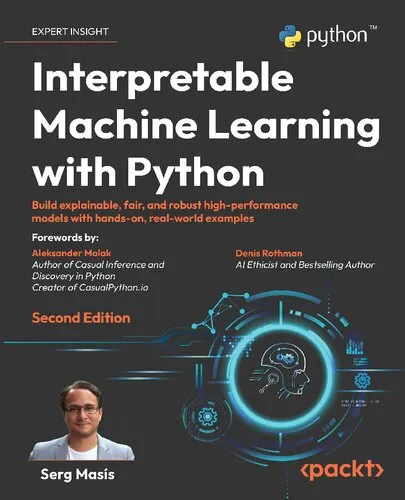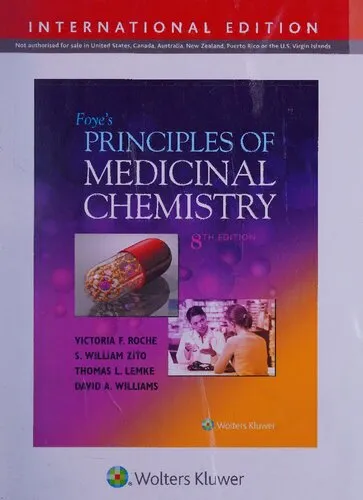Rational Choice in an Uncertain World: The Psychology of Judgment and Decision Making
4.5
بر اساس نظر کاربران

شما میتونید سوالاتتون در باره کتاب رو از هوش مصنوعیش بعد از ورود بپرسید
هر دانلود یا پرسش از هوش مصنوعی 2 امتیاز لازم دارد، برای بدست آوردن امتیاز رایگان، به صفحه ی راهنمای امتیازات سر بزنید و یک سری کار ارزشمند انجام بدینکتاب های مرتبط:
مقدمهای بر کتاب "Rational Choice in an Uncertain World"
کتاب "Rational Choice in an Uncertain World: The Psychology of Judgment and Decision Making" نوشته رید هستی و رابین ام. داوز یکی از برجستهترین منابع در علم تصمیمگیری و روانشناسی قضاوت است. این کتاب عمیقاً به بررسی نحوه تصمیمگیری انسانها در شرایط عدم اطمینان میپردازد و با استفاده از اصول روانشناسی، آمار و علم دادهها، چارچوبی قوی برای انتخابهای بهتر ارائه میدهد. این اثر نه تنها برای متخصصان رشتههای روانشناسی و اقتصاد رفتاری جذاب است بلکه برای هر فردی که درگیر تصمیمگیریهای پیچیده است، ارزشمند میباشد.
خلاصهای جامع از کتاب
کتاب به بررسی این موضوع میپردازد که چرا انسانها اغلب تصمیماتی میگیرند که به نظر میرسد با منطق در تقابل است. مؤلفان توضیح میدهند که قضاوتها و تصمیمگیریها تحت تأثیر محدودیتهای شناختی، تعصبات (biases)، و اشتباهات سیستماتیک قرار میگیرند. همچنین به تفاوت میان مدلهای Normative، Descriptive و Prescriptive در تصمیمگیری اشاره میشود. مدل Normative به تصمیمگیری ایدهآل (بر اساس قوانین منطقی و ریاضی) اشاره دارد، در حالی که مدل Descriptive توضیح میدهد مردم واقعاً چگونه تصمیمگیری میکنند و مدل Prescriptive تلاش دارد ابزارهایی برای بهبود این فرآیند ارائه دهد.
رید هستی و رابین داوز در این کتاب به استفاده از اصول آماری و ابزارهای تحلیلی برای کاهش خطاهای شناختی و بهبود انتخابها تاکید میکنند. این اثر تاکید دارد که اکثر اشتباهات ما نتیجه استفاده نادرست از شهود (intuition) است و نشان میدهد که چگونه میتوانیم از تفکر علمی و منطقی برای بهینهسازی قضاوتهایمان بهره بگیریم.
نکات کلیدی کتاب
- اهمیت آگاهی از تعصبات شناختی مانند Anchoring، Availability Heuristic و Framing Effect.
- تفاوت میان اطلاعات ذهنی (Subjective) و عینی (Objective) در تصمیمگیری.
- نحوه استفاده از آمار و احتمال در انتخابهای روزمره.
- چگونگی مقابله با Overconfidence در تصمیمگیری.
- اهمیت استفاده از Decision Aids برای افزایش دقت و کاهش اشتباهات.
نقلقولهای مشهور از کتاب
- “Our intuitions often lead us astray, and our minds have a limited capacity for rational computation.”
- “Understanding the principles of probability is essential for rational decision making.”
- “Biases are not just errors; they offer systematic insights into the mechanisms of human thought.”
چرا این کتاب اهمیت دارد؟
این کتاب برای کسانی که به بهبود تواناییهای تصمیمگیری خود علاقه دارند، یک منبع اساسی است. در دنیای امروز، توانایی اتخاذ تصمیمات منطقی و مستدل میتواند تفاوت بزرگی در موفقیت یا شکست به وجود آورد. از مدیرانی که باید استراتژیهای حیاتی برای شرکت خود تدوین کنند تا دانشجویانی که در مواجهه با زندگی روزمره با انتخابهای چالشبرانگیز روبرو هستند، همگی میتوانند از درسهای این کتاب بهرهمند شوند.
این کتاب همچنین در حوزههای گستردهای از جمله اقتصاد رفتاری، روانشناسی شناختی، و علوم اجتماعی تأثیرگذار بوده است. تحلیل دقیق مفاهیم کلیدی مانند Biases، Heuristics و Decision Weighting این اثر را به یکی از پایگاههای بنیادین در پژوهشهای مربوط به رفتار انسانی تبدیل کرده است.
Introduction
"Rational Choice in an Uncertain World: The Psychology of Judgment and Decision Making" by Reid Hastie and Robyn M. Dawes is an essential read for anyone seeking to understand the processes behind human judgment and decision-making. By marrying insights from psychology, behavioral economics, and cognitive science, the authors provide a compelling exploration of the challenges individuals face when making decisions in complex and unpredictable environments. This book sheds light on the intricacies of rational thought, the biases that cloud our decisions, and methods for enhancing the quality of our judgments.
Whether you are a student, professional, researcher, or simply someone interested in the mechanisms of decision-making, this book offers a practical framework. It highlights the psychological underpinnings of how we evaluate probabilities, weigh risks, and assess potential outcomes in uncertain situations. The ultimate goal? To demystify the ways we think, make choices, and improve our ability to reach reasoned conclusions.
Detailed Summary of the Book
The book begins by posing a fundamental question: why do humans make irrational decisions, even when we possess the resources and knowledge necessary for logical, reasoned choices? Hastie and Dawes delve into the cognitive tools humans use to interpret their surroundings, process information, and solve problems. They argue that the human brain, while immensely powerful, often relies on shortcuts—referred to as "heuristics"—to navigate decision-making processes. These heuristics, though useful, can also introduce biases that distort our perception of reality.
Central to the book is the distinction between "normative" and "descriptive" decision theories. Normative theories describe how individuals should make decisions if they were fully rational, while descriptive theories explore how decisions are actually made in the real world, where limitations in time, data, and cognition come into play. Through real-world examples and engaging psychological experiments, the authors dissect common biases like overconfidence, confirmation bias, hindsight bias, and the availability heuristic.
Later chapters provide actionable strategies for combating these biases and improving judgment. The book emphasizes the importance of statistical reasoning, the appropriate use of probabilities, and the benefits of a structured decision-making process. Instead of promoting unattainable perfection, Hastie and Dawes focus on how individuals can refine their thinking to achieve better, albeit imperfect, outcomes in uncertain scenarios.
Key Takeaways
- Human decision-making is frequently flawed due to cognitive biases and heuristics.
- Understanding the psychological mechanisms behind judgments can lead to more rational, effective decisions.
- Distinguishing between normative and descriptive theories of decision-making helps us see where gaps in rationality occur.
- Practical tools—such as statistical reasoning and probabilistic thinking—are essential for better decision-making.
- Improving judgment is an ongoing process that requires awareness and effort, rather than the expectation of perfection.
Famous Quotes from the Book
"To make good decisions, it is necessary to sharpen our ability to think probabilistically."
"Humans are not irrational; they are predictably irrational.”
"A good decision does not necessarily lead to a good outcome—luck and uncertainty still play a role."
Why This Book Matters
"Rational Choice in an Uncertain World" is more than just an academic text; it is a transformative guide for understanding and enhancing the decision-making process. As our world becomes increasingly complex and information-dense, the relevance of this book continues to grow. Poor decision-making can lead to detrimental outcomes in every sphere of life, from personal relationships to business operations and public policy. By providing a foundation for better reasoning and judgment, Hastie and Dawes empower readers to confront uncertainty with confidence and clarity.
This book also contributes significantly to the broader field of decision sciences. It bridges the gap between theoretical constructs and real-world applications, making its insights accessible to a wide audience. Thought-provoking yet practical, it encourages readers to question their assumptions, reconsider their judgments, and embrace a more deliberate approach to making choices. For anyone striving to improve their critical thinking and decision-making capabilities, this book is an invaluable resource.
دانلود رایگان مستقیم
شما میتونید سوالاتتون در باره کتاب رو از هوش مصنوعیش بعد از ورود بپرسید
دسترسی به کتابها از طریق پلتفرمهای قانونی و کتابخانههای عمومی نه تنها از حقوق نویسندگان و ناشران حمایت میکند، بلکه به پایداری فرهنگ کتابخوانی نیز کمک میرساند. پیش از دانلود، لحظهای به بررسی این گزینهها فکر کنید.
این کتاب رو در پلتفرم های دیگه ببینید
WorldCat به شما کمک میکنه تا کتاب ها رو در کتابخانه های سراسر دنیا پیدا کنید
امتیازها، نظرات تخصصی و صحبت ها درباره کتاب را در Goodreads ببینید
کتابهای کمیاب یا دست دوم را در AbeBooks پیدا کنید و بخرید
1476
بازدید4.5
امتیاز0
نظر98%
رضایتنظرات:
4.5
بر اساس 0 نظر کاربران
Questions & Answers
Ask questions about this book or help others by answering
No questions yet. Be the first to ask!
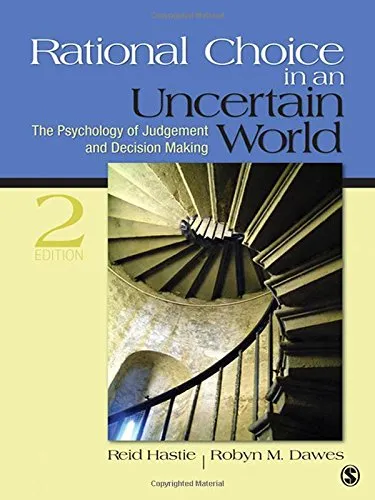

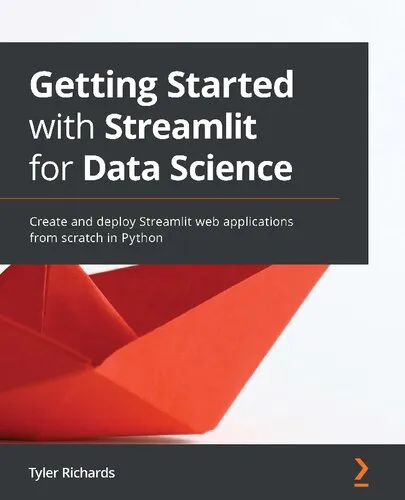



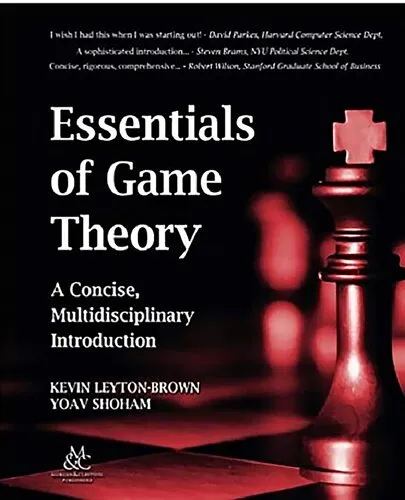
![The Ultimate iOS Interview Playbook: Conquer Swift, frameworks, design patterns, and app architecture [Team-IRA]](https://s3.refhub.ir/images/thumb/The_Ultimate_iOS_Interview_Playbook__Conquer__29925.webp)

